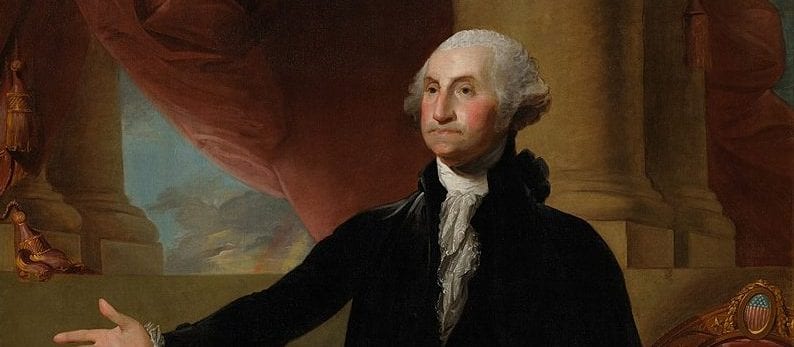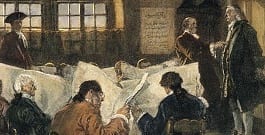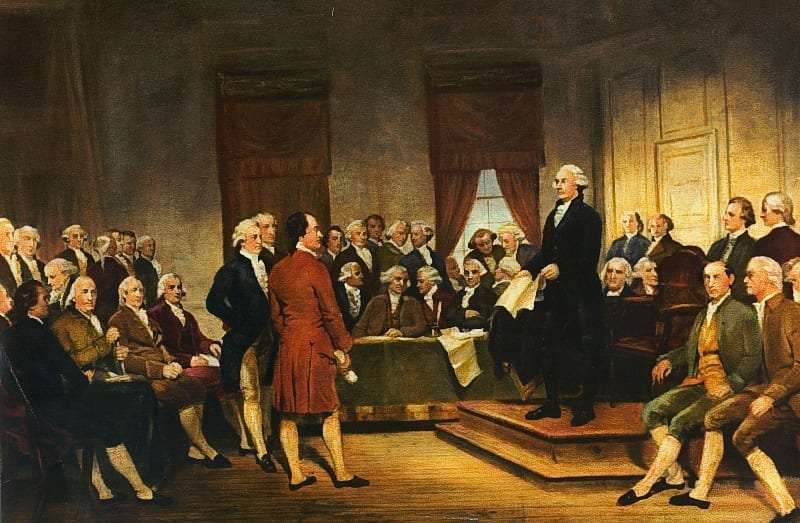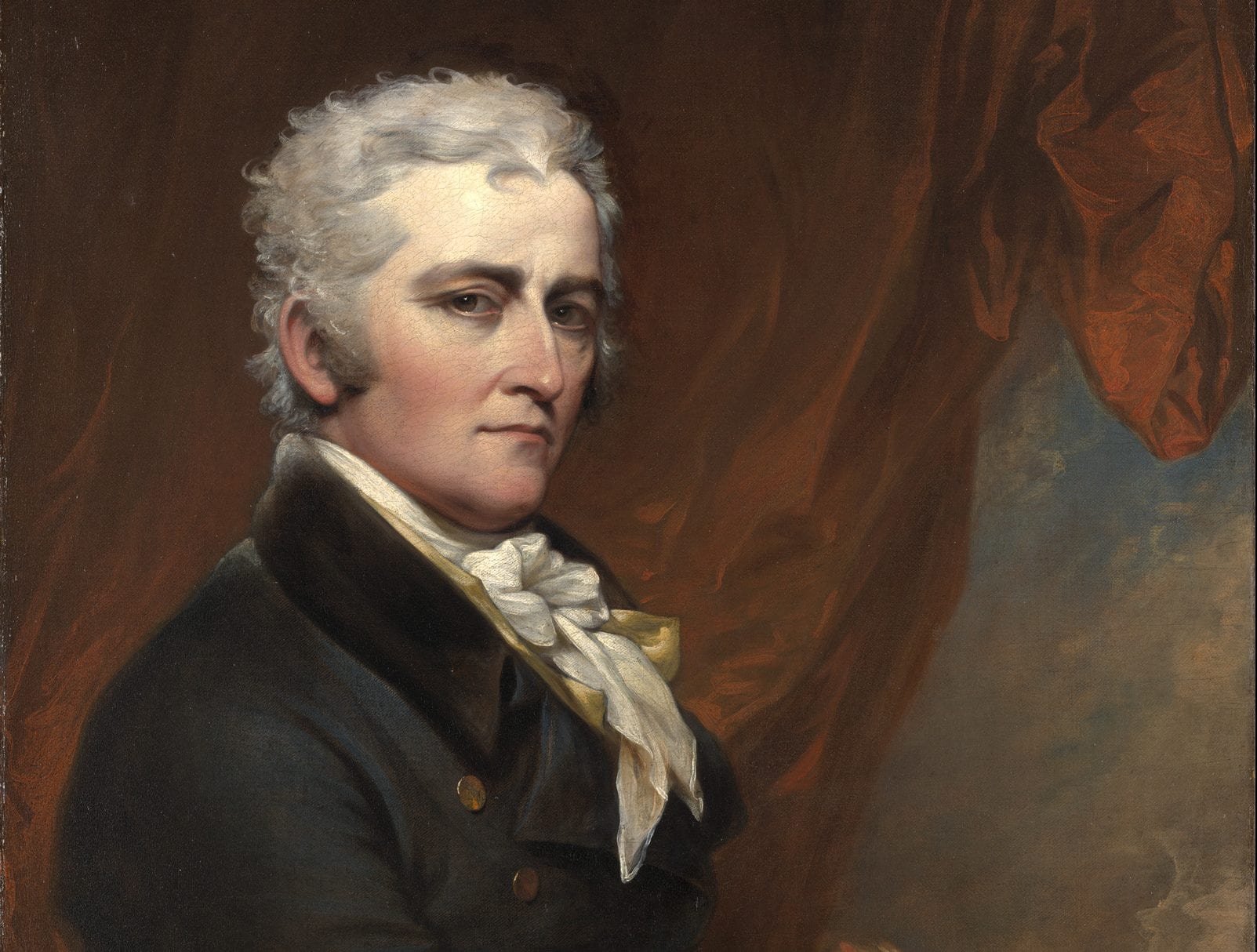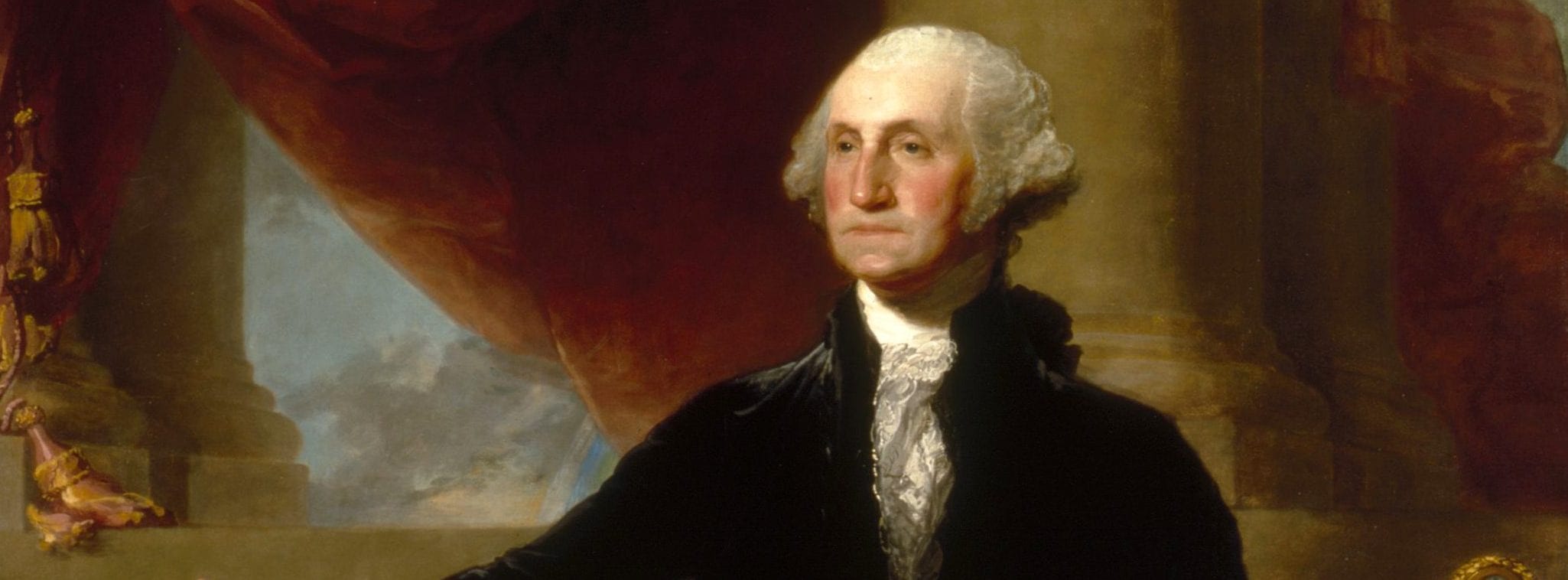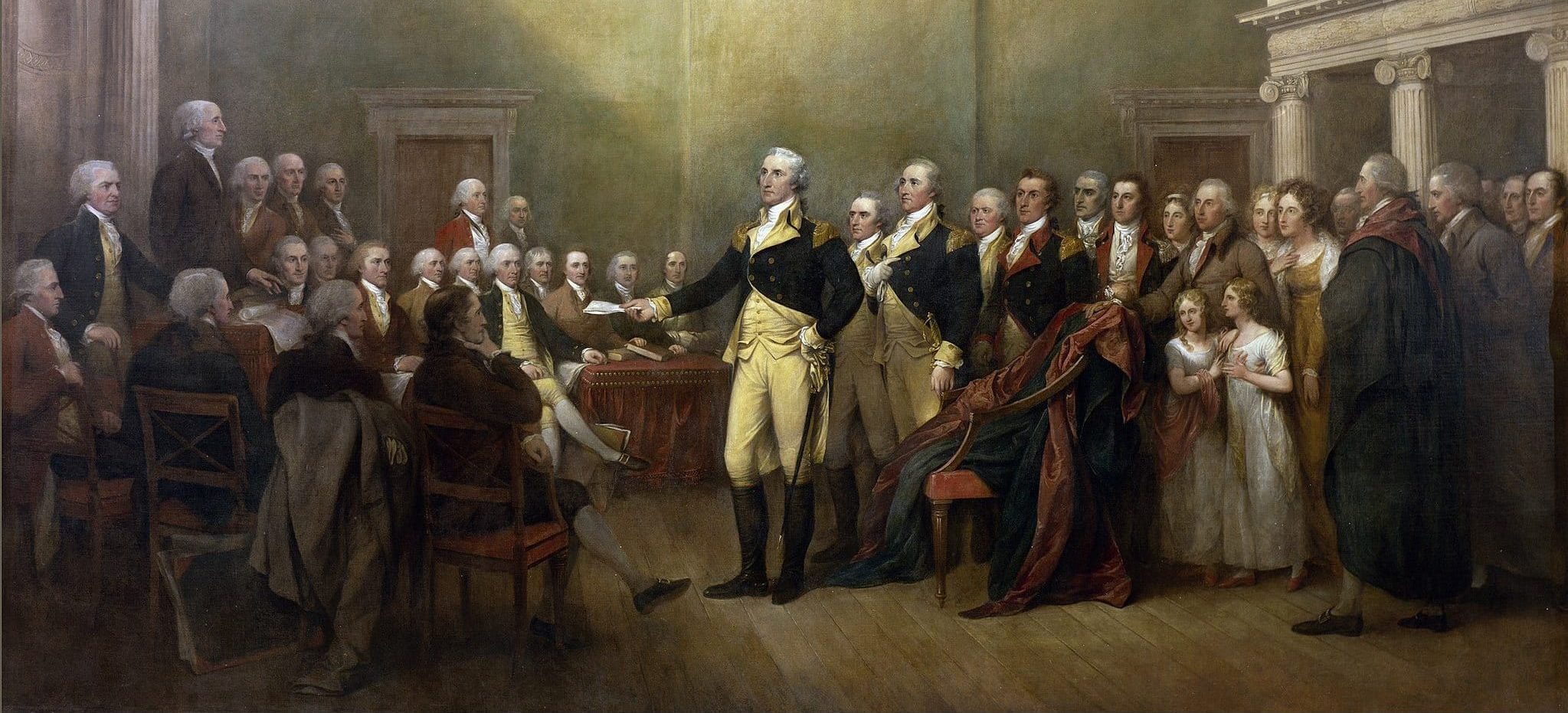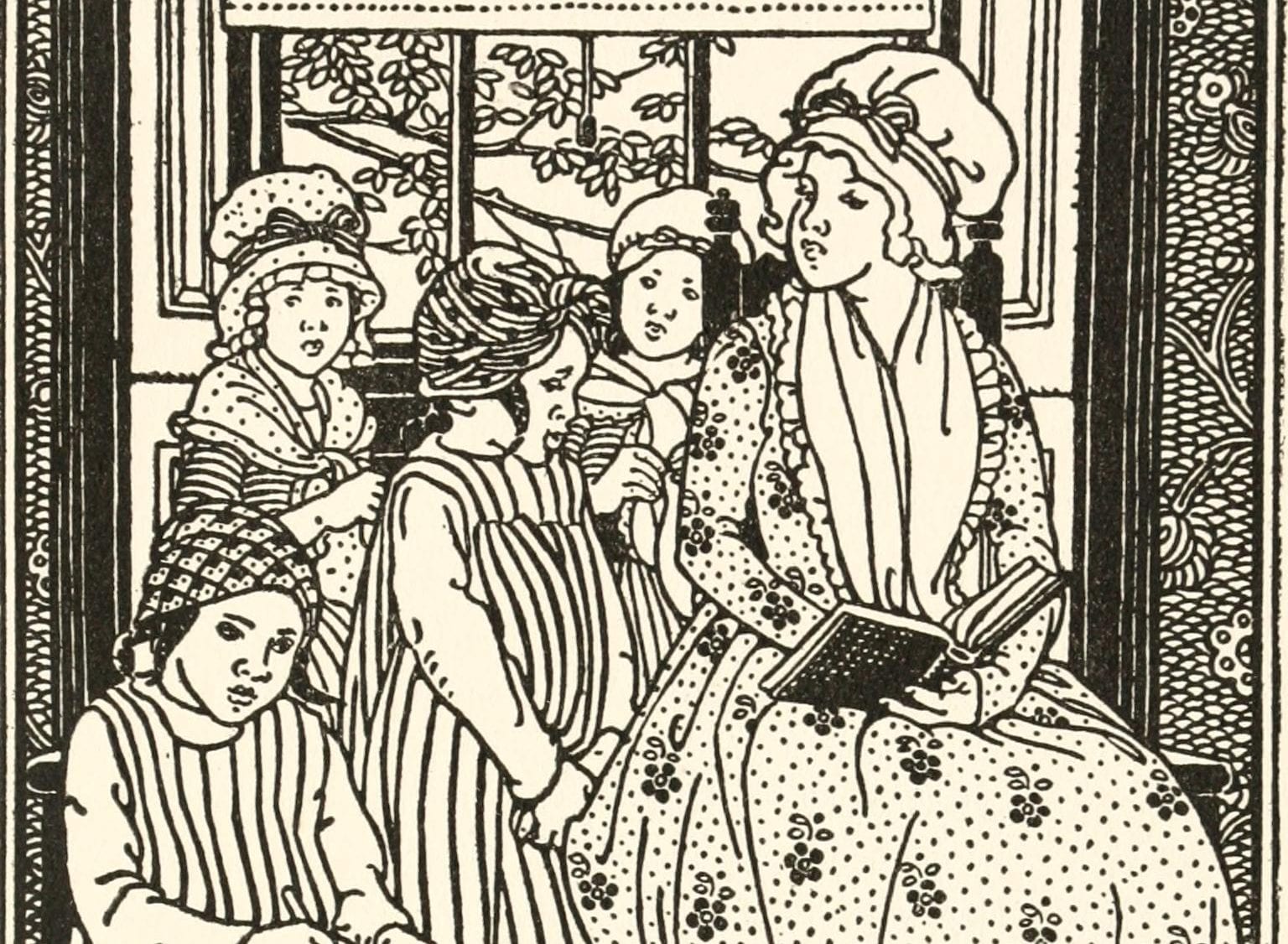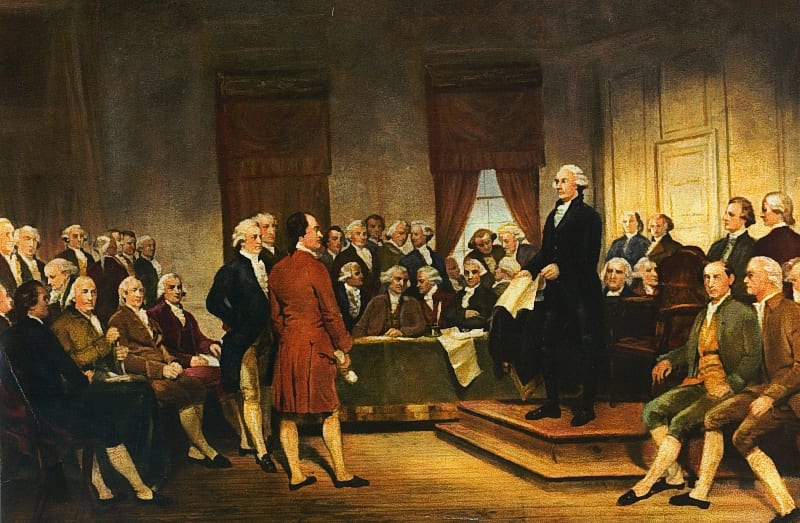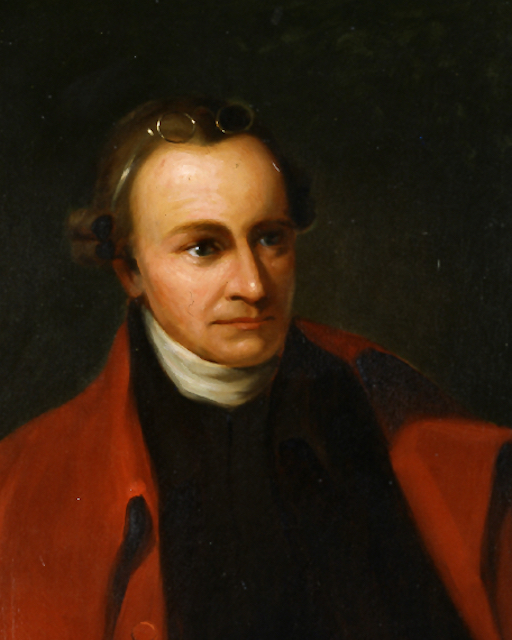
No related resources
Introduction
Virginia became the tenth state to ratify the U.S. Constitution after a slim majority of delegates to a ratifying convention held in Richmond voted to approve the Constitution by a vote of 89–79 on June 25, 1788. During the convention, James Madison (1751–1836) was the chief advocate for ratification and spoke frequently in favor of the Constitution, while Patrick Henry (1736–1799) was a fierce critic and the leader of the opposition.
Henry, along with other Antifederalists, argued that the extent of the problems of governance under the Articles of Confederation had been exaggerated. He thought that a more balanced view of the current situation would raise doubts about the need for the broad expansion of federal authority brought about by the Constitution. Henry charged that supporters of the Constitution were motivated not by a concern for securing the liberties of the people, especially the “middling and lower classes of people,” but rather by a desire to create a “powerful and mighty empire” that would be “incompatible with the genius of republicanism. There will be no checks, no real balances, in this government.”
Henry objected to many features of the Constitution, beginning with the Preamble, which he would have preferred to declare “We, the states” rather than “We the People.” In setting out his numerous objections, he drew on provisions in Virginia’s Declaration of Rights, adopted in June 1776, and argued that the principles enshrined in that document had not been followed in framing the U.S. Constitution. Along with many other critics of the Constitution, he worried in particular about granting Congress expansive power to levy taxes and regulate elections, and he took issue with the necessary and proper clause (Article I, section 8, clause 18) and the supremacy clause (Article VI), all of which, he argued, would promote a consolidation of power in the federal government.
Source: Patrick Henry, Remarks at Virginia Ratifying Convention, June 5, 1788, https://memory.loc.gov/cgi-bin/query/r?ammem/hlaw:@field(DOCID+@lit(ed0038)).
Mr. Chairman, I am much obliged to the very worthy gentleman for his encomium. I wish I was possessed with talents, or possessed of anything that might enable me to elucidate this great subject. I am not free from suspicion: I am apt to entertain doubts. I rose yesterday to ask a question which arose in my own mind. When I asked that question, I thought the meaning of my interrogation was obvious. The fate of this question and of America may depend on this. Have they said, We, the states? Have they made a proposal of a compact between states? If they had, this would be a confederation. It is otherwise most clearly a consolidated government. The question turns, sir, on that poor little thing—the expression, We, the people, instead of the states, of America. I need not take much pains to show that the principles of this system are extremely pernicious, impolitic, and dangerous. Is this a monarchy, like England—a compact between prince and people, with checks on the former to secure the liberty of the latter? Is this a confederacy, like Holland—an association of a number of independent states, each of which retains its individual sovereignty? It is not a democracy, wherein the people retain all their rights securely. Had these principles been adhered to, we should not have been brought to this alarming transition, from a confederacy to a consolidated government. We have no detail of these great consideration, which, in my opinion, ought to have abounded before we should recur to a government of this kind. Here is a resolution as radical as that which separated us from Great Britain. It is radical in this transition; our rights and privileges are endangered, and the sovereignty of the states will be relinquished: and cannot we plainly see that this is actually the case?...
... The distinction between a national government and a confederacy is not sufficiently discerned. Had the delegates who were sent to Philadelphia a power to propose a consolidated government instead of a confederacy? Were they not deputed by states, and not by the people? The assent of the people, in their collective capacity, is not necessary to the formation of a federal government. The people have no right to enter into leagues, alliances, or confederations; they are not the proper agents for this purpose. States and foreign powers are the only proper agents for this kind of government. Show me an instance where the people have exercised this business. Has it not always gone through the legislatures? I refer you to the treaties with France, Holland, and other nations. How were they made? Were they not made by the states? Are the people, therefore, in their aggregate capacity, the proper persons to form a confederacy? This, therefore, ought to depend on the consent of the legislatures, the people having never sent delegates to make any proposition for changing the government. Yet I must say, at the same time, that it was made on grounds the most pure; and perhaps I might have been brought to consent to it so far as to the change of government. But there is one thing in it which I never would acquiesce in. I mean, the changing it into a consolidated government, which is so abhorrent to my mind. ... If we admit this consolidated government, it will be because we like a great, splendid one. Some way or other we must be a great and mighty empire; we must have an army, and a navy, and a number of things. When the American spirit was in its youth, the language of America was different: liberty, sir, was then the primary object. We are descended from a people whose government was founded on liberty: our glorious forefathers of Great Britain made liberty the foundation of everything. That country is become a great, mighty, and splendid nation; not because their government is strong and energetic, but, sir, because liberty is its direct end and foundation. We drew the spirit of liberty from our British ancestors: by that spirit we have triumphed over every difficulty. But now, sir, the American spirit, assisted by the ropes and chains of consolidation, is about to convert this country into a powerful and mighty empire. If you make the citizens of this country agree to become the subjects of one great consolidated empire of America, your government will not have sufficient energy to keep them together. Such a government is incompatible with the genius of republicanism. There will be no checks, no real balances, in this government. What can avail your specious, imaginary balances, your rope-dancing, chain-rattling, ridiculous ideal checks and contrivances? But, sir, we are not feared by foreigners; we do not make nations tremble. Would this constitute happiness, or secure liberty? I trust, sir, our political hemisphere will ever direct their operations to the security of those objects.
Consider our situation, sir: go to the poor man, and ask him what he does. He will inform you that he enjoys the fruits of his labor, under his own fig-tree,1 with his wife and children around him, in peace and security. Go to every other member of society—you will find the same tranquil ease and content; you will find no alarms or disturbances. Why, then, tell us of danger, to terrify us into an adoption of this new form of government? And yet who knows the dangers that this new system may produce? They are out of the sight of the common people: they cannot foresee latent consequences. I dread the operation of it on the middling and lower classes of people: it is for them I fear the adoption of this system. I fear I tire the patience of the committee; but I beg to be indulged with a few more observations. When I thus profess myself an advocate for the liberty of the people, I shall be told I am a designing man, that I am to be a great man, that I am to be a demagogue; and many similar illiberal insinuations will be thrown out: but, sir, conscious rectitude outweighs those things with me. I see great jeopardy in this new government. I see none from our present one. I hope some gentleman or other will bring forth, in full array, those dangers, if there be any, that we may see and touch them. I have said that I thought this a consolidated government: I will now prove it. Will the great rights of the people be secured by this government? Suppose it should prove oppressive, how can it be altered? Our bill of rights declares “that a majority of the community hath an indubitable, unalienable, and indefeasible right to reform, alter, or abolish it, in such manner as shall be judged most conducive to the public weal.”2
I have just proved that one tenth, or less, of the people of America—a most despicable minority—may prevent this reform or alteration.3 Suppose the people of Virginia should wish to alter their government; can a majority of them do it? No; because they are connected with other men, or, in other words, consolidated with other states. When the people of Virginia, at a future day, shall wish to alter their government, though they should be unanimous in this desire, yet they may be prevented therefrom by a despicable minority at the extremity of the United States. The founders of your own Constitution made your government changeable: but the power of changing it is gone from you. Whither is it gone? It is placed in the same hands that hold the rights of twelve other states; and those who hold those rights have right and power to keep them. It is not the particular government of Virginia: one of the leading features of that government is that a majority can alter it, when necessary for the public good. This government is not a Virginian, but an American government. Is it not, therefore, a consolidated government? The sixth clause of your bill of rights tells you “that elections of members to serve as representatives of the people in Assembly ought to be free, and that all men having sufficient evidence of permanent common interest with, and attachment to, the community, have the right of suffrage, and cannot be taxed, or deprived of their property for public uses, without their own consent, or that of their representatives so elected, nor bound by any law to which they have not in like manner assented for the public good.” But what does this Constitution say? The clause under consideration gives an unlimited and unbounded power of taxation. Suppose every delegate from Virginia opposes a law laying a tax; what will it avail? They are opposed by a majority; eleven members can destroy their efforts: those feeble ten cannot prevent the passing the most oppressive tax law; so that, in direct opposition to the spirit and express language of your declaration of rights, you are taxed, not by your own consent, but by people who have no connection with you.
The next clause of the bill of rights tells you “that all power of suspending law, or the execution of laws, by any authority, without the consent of the representatives of the people, is injurious to their rights, and ought not to be exercised.” This tells us that there can be no suspension of government or laws without our own consent; yet this Constitution can counteract and suspend any of our laws that contravene its oppressive operation; for they have the power of direct taxation, which suspends our bill of rights; and it is expressly provided that they can make all laws necessary for carrying their powers into execution; and it is declared paramount to the laws and constitutions of the states. Consider how the only remaining defense we have left is destroyed in this manner. Besides the expenses of maintaining the Senate and other house in as much splendor as they please, there is to be a great and mighty president, with very extensive powers—the powers of a king. He is to be supported in extravagant magnificence; so that the whole of our property may be taken by this American government, by laying what taxes they please, giving themselves what salaries they please, and suspending our laws at their pleasure. I might be thought too inquisitive, but I believe I should take up very little of your time in enumerating the little power that is left to the government of Virginia; for this power is reduced to little or nothing: their garrisons, magazines, arsenals, and forts, which will be situated in the strongest places within the states; their ten miles square,4 with all the fine ornaments of human life, added to their powers, and taken from the states, will reduce the power of the latter to nothing....
In this scheme of energetic government, the people will find two sets of tax-gatherers—the state and the federal sheriffs. This, it seems to me, will produce such dreadful oppression as the people cannot possibly bear. The federal sheriff may commit what oppression, make what distresses, he pleases, and ruin you with impunity; for how are you to tie his hands? Have you any sufficiently decided means of preventing him from sucking your blood by speculations, commissions, and fees? Thus thousands of your people will be most shamefully robbed: our state sheriffs, those unfeeling blood-suckers, have, under the watchful eye of our legislature, committed the most horrid and barbarous ravages on our people. It has required the most constant vigilance of the legislature to keep them from totally ruining the people; a repeated succession of laws has been made to suppress their iniquitous speculations and cruel extortions; and as often has their nefarious ingenuity devised methods of evading the force of those laws: in the struggle they have generally triumphed over the legislature....
What can be more defective than the clause concerning the elections? The control given to Congress over the time, place, and manner of holding elections will totally destroy the end of suffrage. The elections may be held at one place, and the most inconvenient in the state; or they may be at remote distances from those who have a right of suffrage: hence nine out of ten must either not vote at all, or vote for strangers; for the most influential characters will be applied to, to know who are the most proper to be chosen. I repeat, that the control of Congress over the manner, etc., of electing well warrants this idea. The natural consequence will be that this democratic branch will possess none of the public confidence; the people will be prejudiced against representatives chosen in such an injudicious manner. The proceedings in the northern conclave will be hidden from the yeomanry of this country....
... Before you abandon the present system, I hope you will consider not only its defects, most maturely, but likewise those of that which you are to substitute for it. May you be fully apprised of the dangers of the latter, not by fatal experience, but by some abler advocate than I!
- 1. Micah 4:4 (“But they shall sit every man under his vine and under his fig tree; and none shall make them afraid: for the mouth of the LORD of hosts hath spoken it.”) was a popular biblical passage during the Revolution. The preceding verse (Micah 4:3) is now better known: “And he shall judge among many people, and rebuke strong nations afar off; and they shall beat their swords into plowshares, and their spears into pruning hooks: nation shall not lift up a sword against nation, neither shall they learn war any more.”
- 2. Virginia Declaration of Rights (1776), Section 3.
- 3. Henry was expressing his concern that the framers of the Constitution established a constitutional amendment process that made it too difficult to enact necessary reforms, because a mere one-tenth of the people could prevent ratification of amendments. As Henry argued elsewhere in this address, amendments have to be ratified by three-fourths of the states, thereby allowing four of the thirteen original states to block passage of a proposed amendment; that is, “four of the smallest states, that do not collectively contain one-tenth part of the population of the United States, may obstruct the most salutary and necessary amendments.”
- 4. Article I, section 8, clause 17 provides for a district as the seat of government formed of land ceded by the surrounding states

Conversation-based seminars for collegial PD, one-day and multi-day seminars, graduate credit seminars (MA degree), online and in-person.




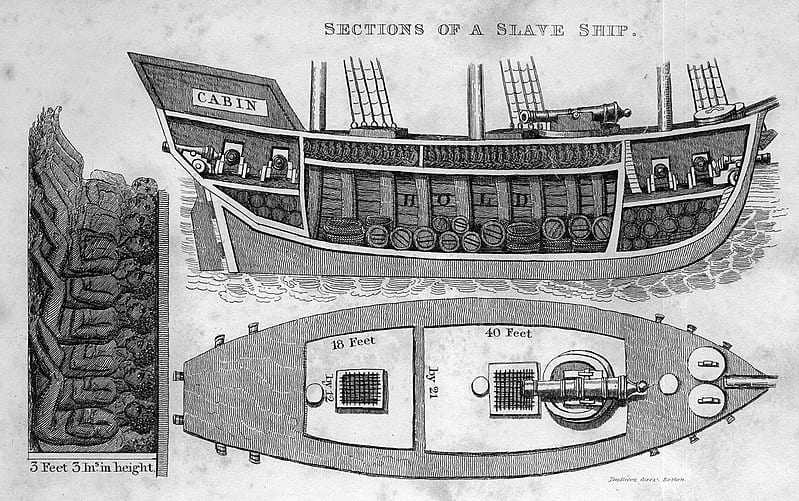







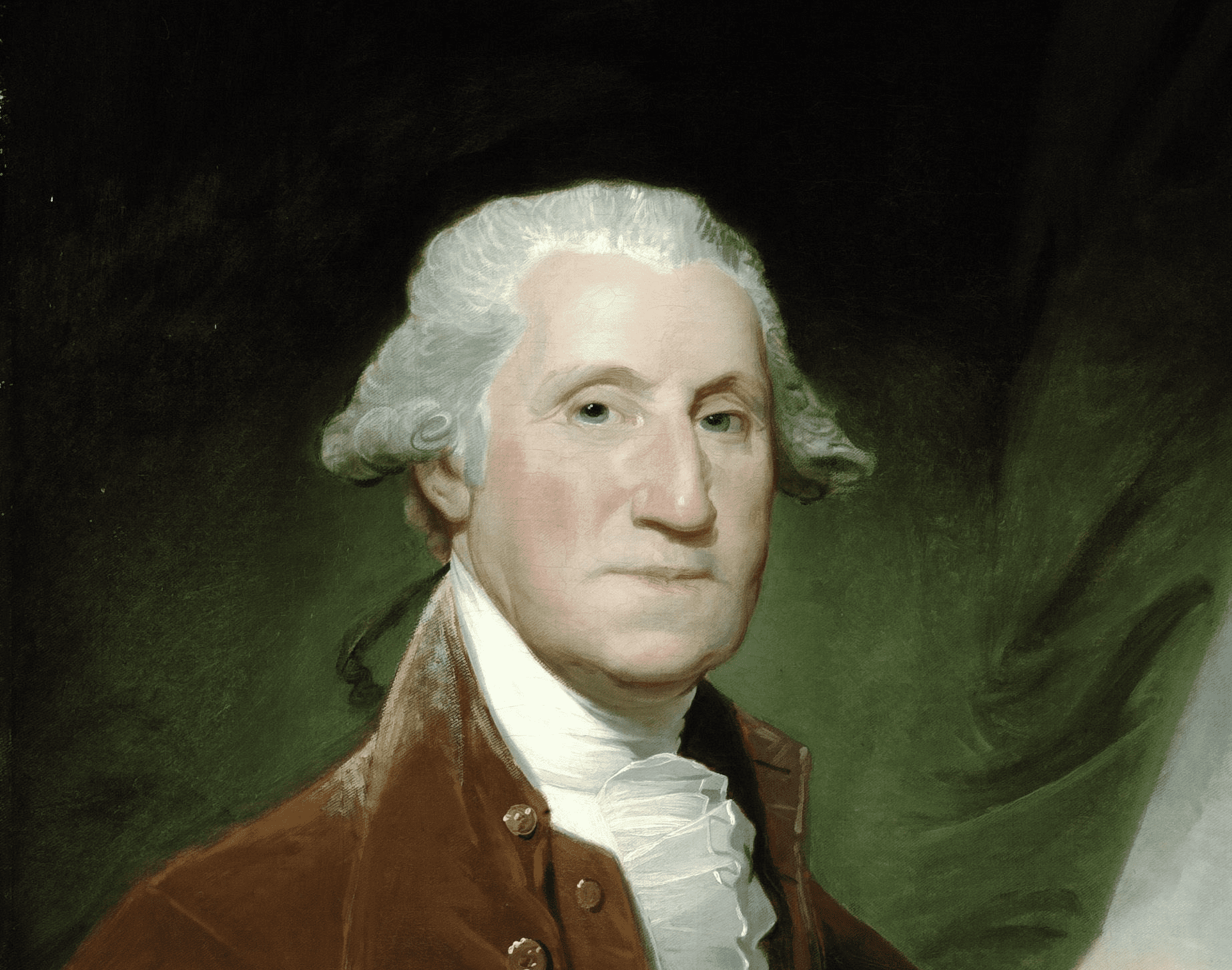
















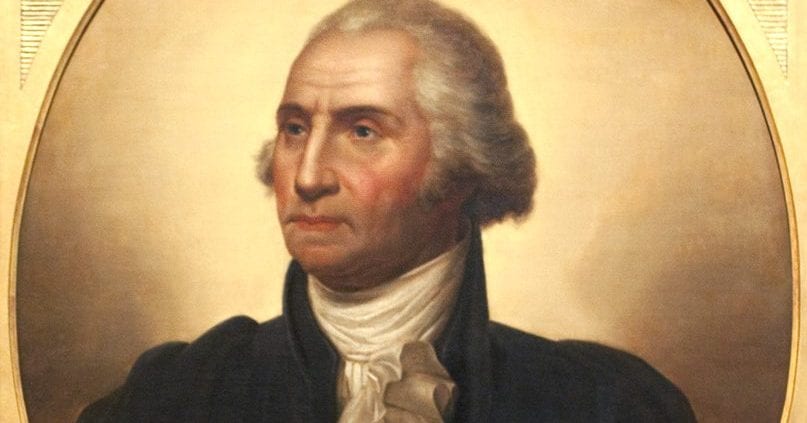


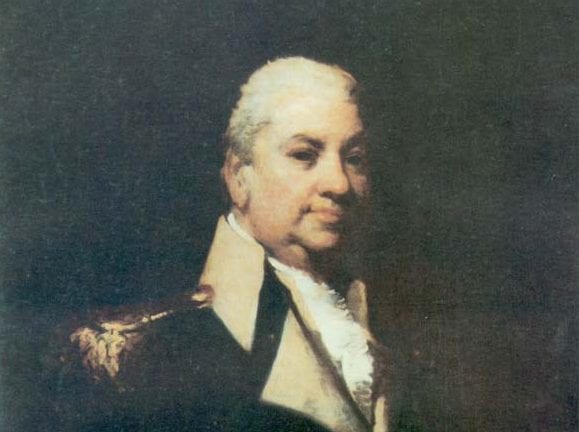




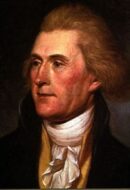














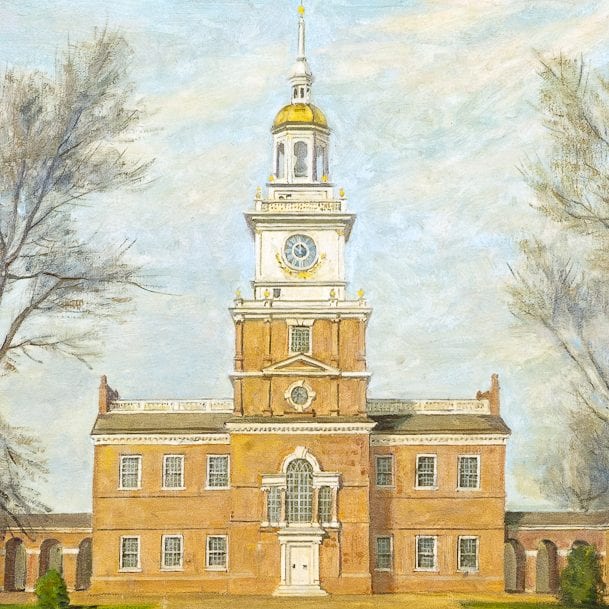

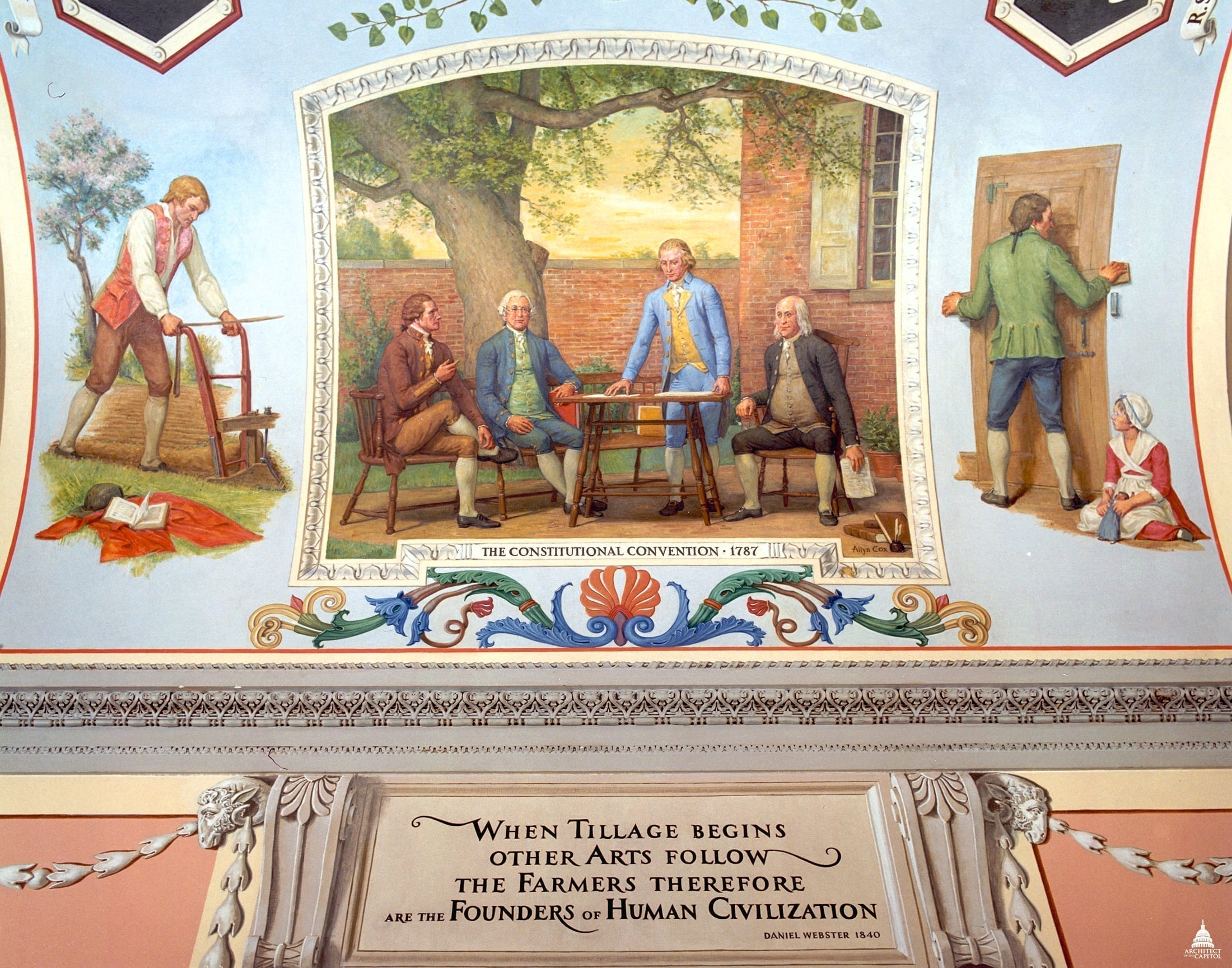

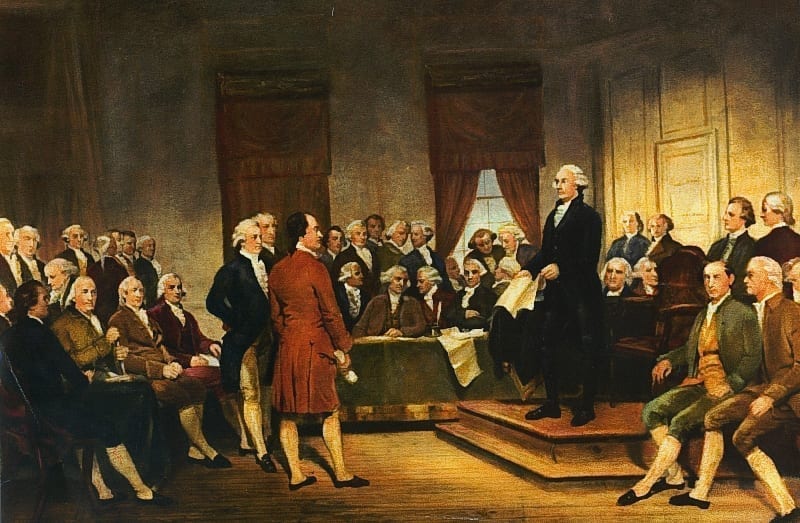



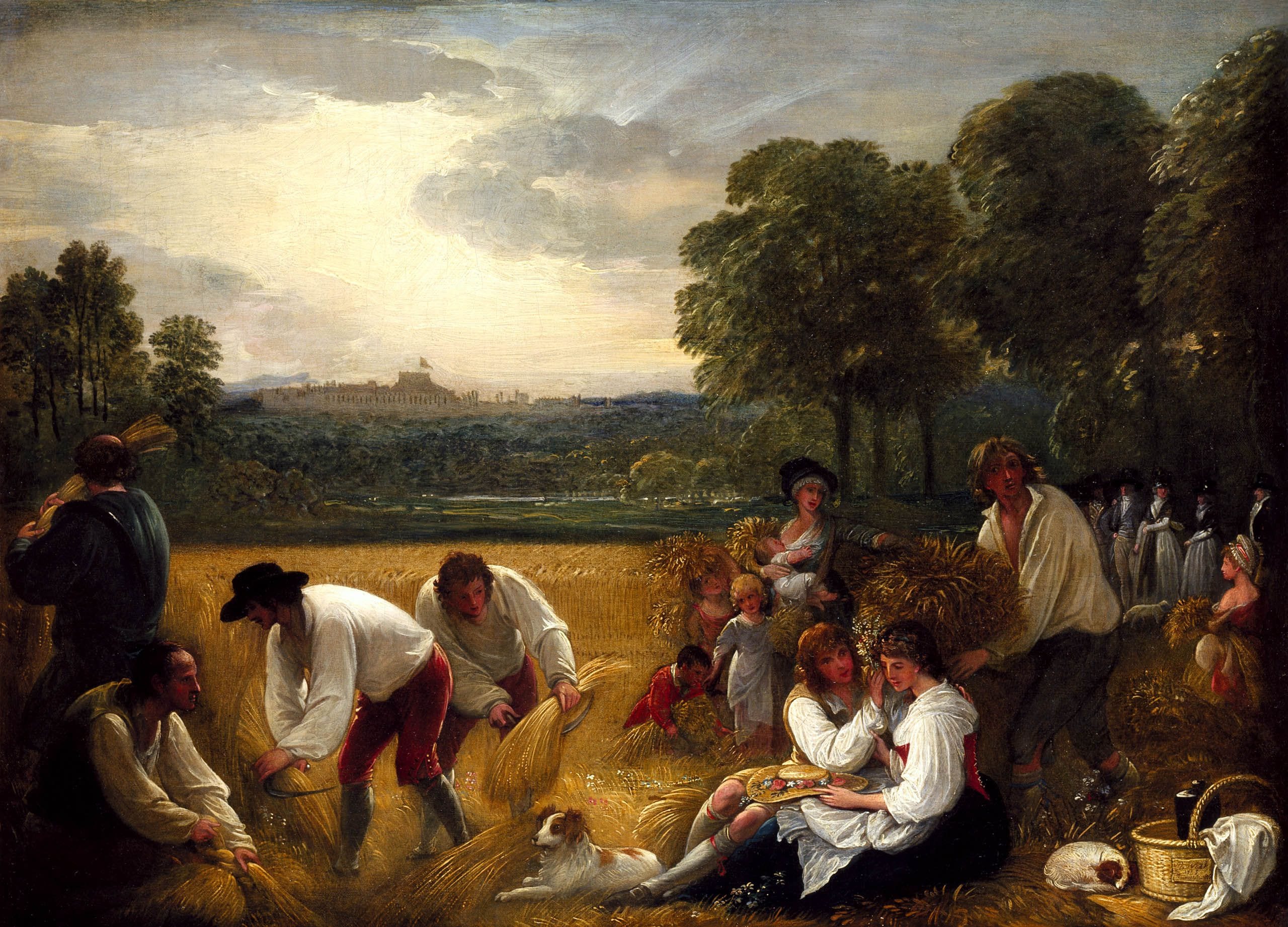


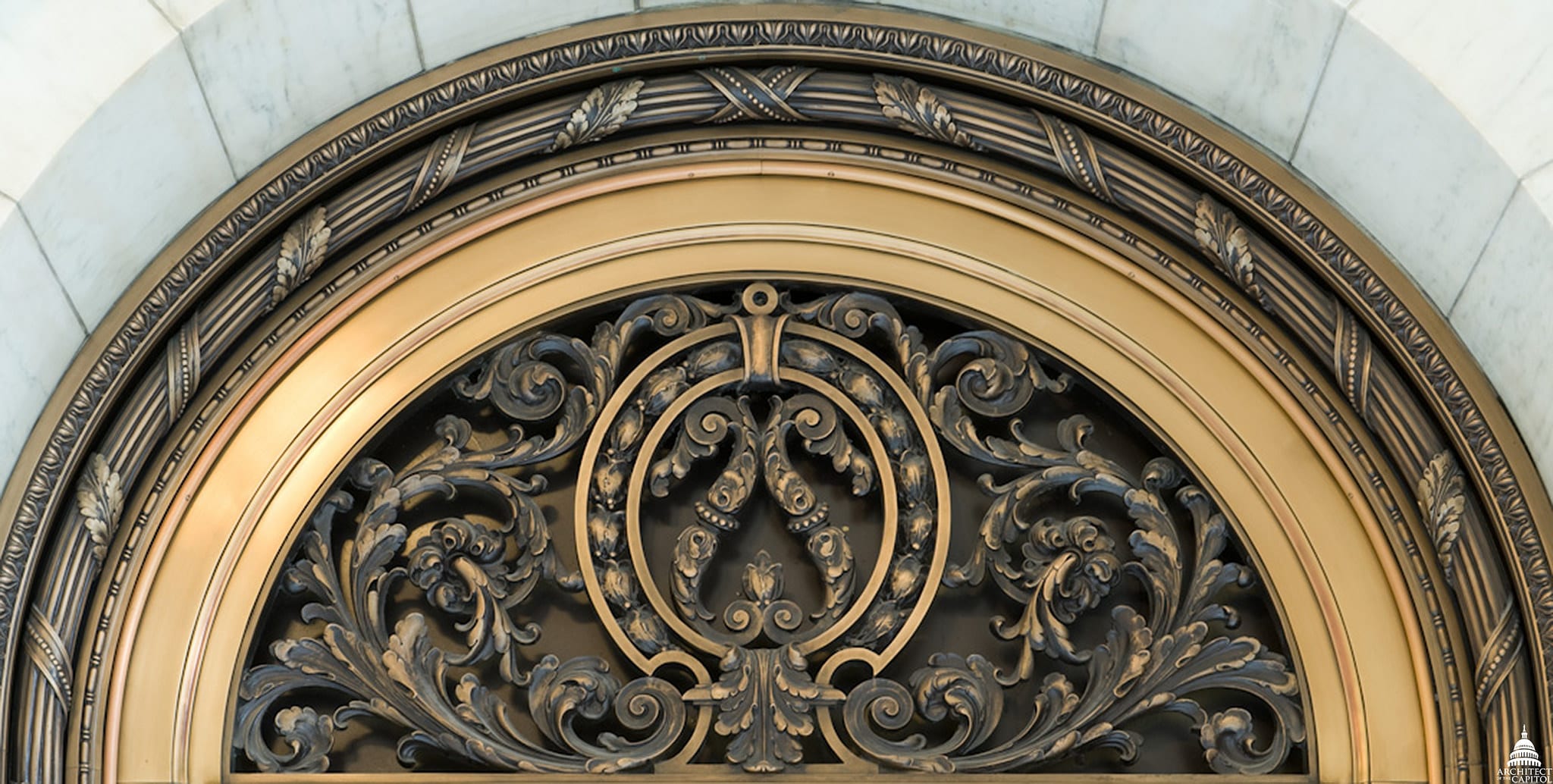













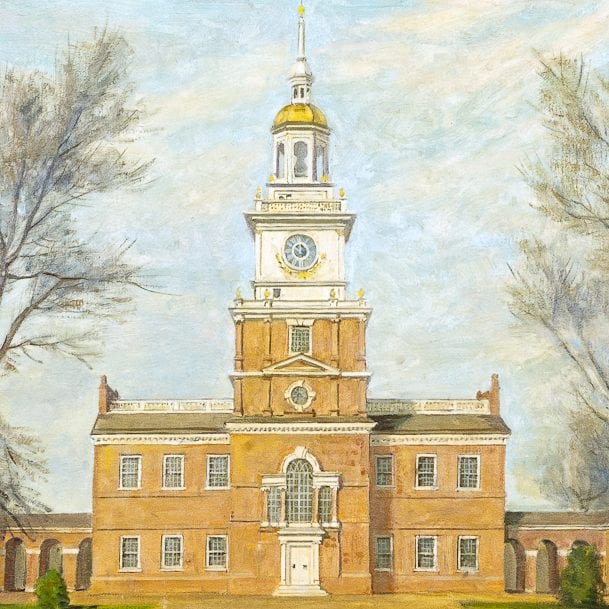
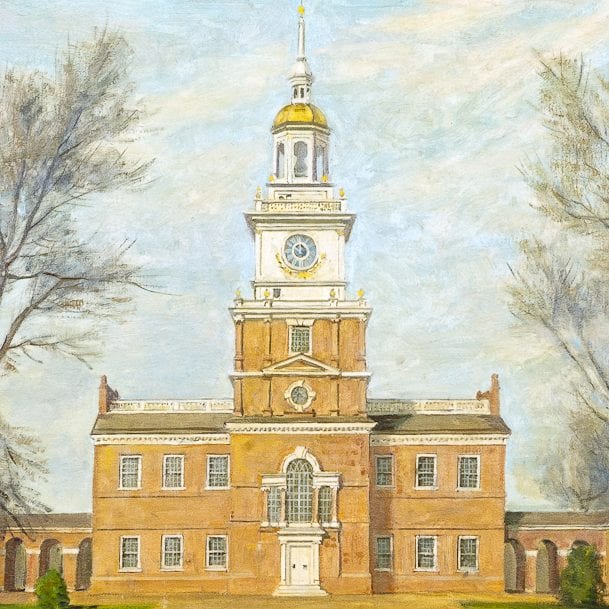


































































































![Finley, A. (1829) Pennsylvania. Philada. [Map] Retrieved from the Library of Congress, https://www.loc.gov/item/98688548/.](/content/uploads/2024/02/Map-of-PA--273x190.jpg)






































